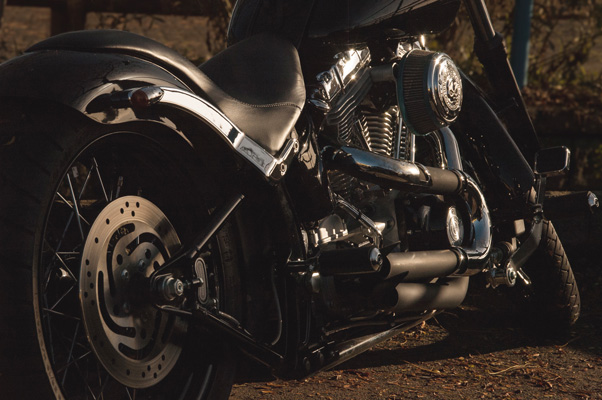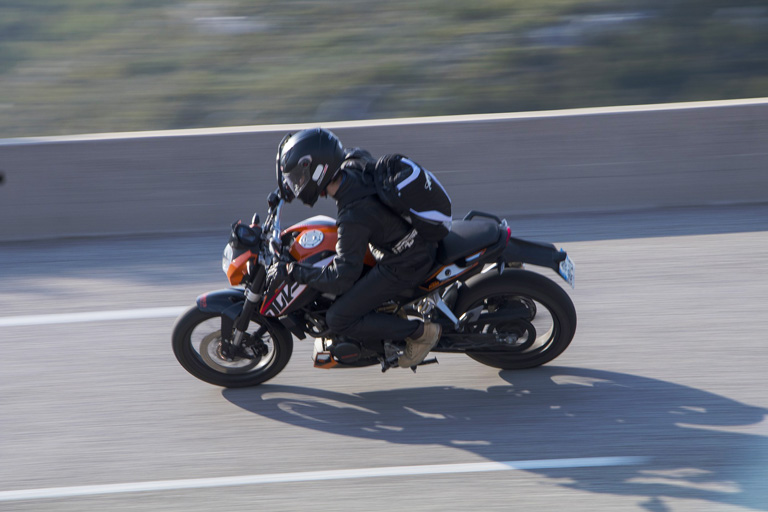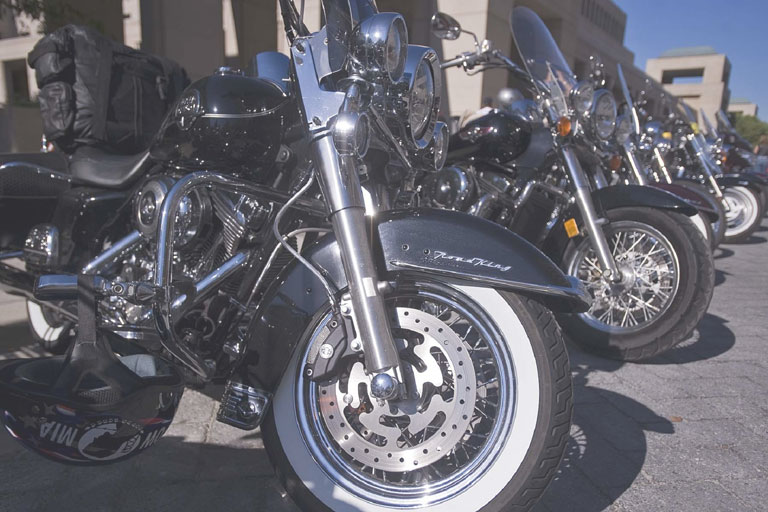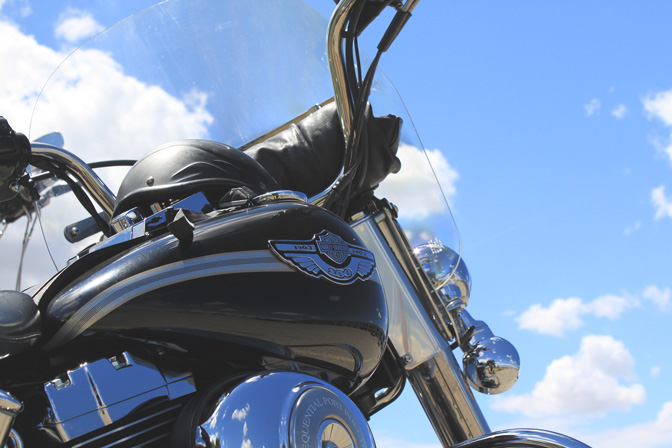Do Anti-Lock Brakes Make Motorcycles Safer?
Many cars today come with an anti-lock braking system (ABS). But most motorcycle manufacturers continue to treat ABS as an expensive, optional system instead of as a standard safety feature. Why is the motorcycle industry lagging behind the car industry when it comes to ABS, especially since braking on a motorcycle is so much more […]

June 21, 2017

Many cars today come with an anti-lock braking system (ABS). But most motorcycle manufacturers continue to treat ABS as an expensive, optional system instead of as a standard safety feature. Why is the motorcycle industry lagging behind the car industry when it comes to ABS, especially since braking on a motorcycle is so much more difficult (and potentially much more dangerous) than braking in a car?
What Is ABS?

Anti-lock braking systems measure the speed of a vehicle’s wheels. They can then determine whether or not a wheel is about to lock up and stop spinning. If the ABS senses a possible lock-up, it decreases brake pressure for a split second and then increases it when it has regained traction. This keeps the brakes from locking and keeps them operating under the most amount of pressure possible without locking up.
Braking is much more difficult for motorcyclists than for drivers of other vehicles. Most motorcycles have separate controls for each wheel, and either wheel can lock up if the rider brakes too hard.
If you drive a car, you’ve probably experienced a time when you noticed a hazard or obstacle in the road at the last second and had to slam on the brakes to avoid a collision. Maybe slamming on your brakes caused you to skid, but you probably were still able to control the vehicle to a certain extent and hopefully keep it upright.
When you ride on a motorcycle, however, you can’t just slam on your brakes.
Not only do you have a brake pedal to control the rear wheel, but you also have a hand brake to control the front wheel. It’s important to use both to slow down effectively and avoid a collision. In the panic of trying to avoid an accident, you may instinctively grab the front brake hard or slam your foot on the brake pedal. Either one of these instincts may cause your brakes to lock up and cause you to either spin out or fall off of your bike.
How Does ABS Work on Motorcycles?

On motorcycles, ABS monitors the speed of the bike’s wheels and decreases pressure when it senses a possible lock-up.
ABS doesn’t engage on a motorcycle unless it’s necessary. That means that if you’re coming to a stoplight and slow down like usual to a complete stop, you won’t feel the ABS affect your braking at all. It’s only when the ABS senses that a lock-up is possible that it will affect your braking. Remember, the ABS only senses a possible lock-up when you try to brake too hard, too fast.
Some riders worry that ABS may increase their stopping distance. A rider’s stopping distance refers to the stretch of road they travel as they attempt to come to a complete stop. However, the Insurance Institute for Highway Safety (IIHS) found that riders with ABS actually had shorter stopping distances than those without it. It didn’t even matter whether a rider was new or experienced or whether the road was wet or dry.
The Potential Life-Saving Technology of ABS

The IIHS found that ABS-equipped motorcycles had a 31 percent lower rate of fatal crashes than motorcycles without ABS. That’s comparable to the effectiveness of helmets in preventing motorcycle fatalities (37 percent).
However, the National Highway Traffic Safety Association (NHTSA) has not required ABS to be a standard safety feature on motorcycles. Just like in states where helmets are not mandated by law (like in Indiana if you are over 18), the decision to have ABS is left to the individual rider.
Just because ABS is not required by law doesn’t mean that it isn’t an effective safety feature. Experienced riders who have never ridden on a bike with ABS and don’t anticipate trying it anytime soon may be a hard sell, but for anyone looking to purchase a new bike, it may be a good idea to consider a bike with ABS.
Because ABS doesn’t engage unless it needs to, it can act like a safety net for all riders. Whether new or experienced, there may come a time when road conditions combined with a split second of inattentiveness or the recklessness of another vehicle make it difficult to rely on your own braking capabilities. Your instincts may override your knowledge, and all it takes is a hard grip on the front brake or a hard slam on the rear brake to lock up your wheels and send you spinning or falling.
Help from an Indiana Motorcycle Accident Attorney
No safety feature can guarantee that you will avoid accidents 100 percent of the time. Whether your bike has ABS or not, you may end up in a situation where a collision is unavoidable, through no fault of your own.
If you’ve been injured in a motorcycle accident, Hensley Legal Group can help. Call us today or contact us online for a free consultation.
Available 24/7
Free Case Review
You won’t pay any fees until we win your case.
It’s easy - you can: